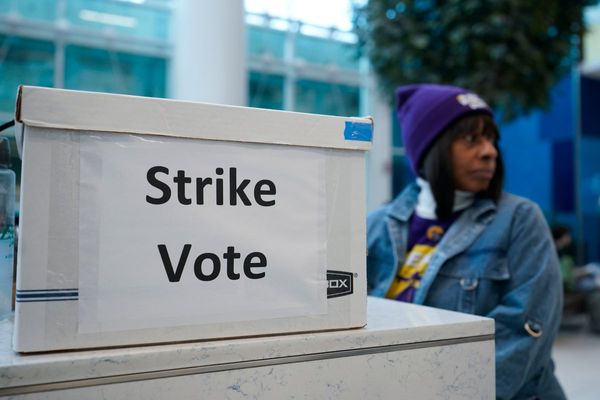Herbert Diess really wants to connect with China.
The Volkswagen (VWAGY) CEO plans on cranking up the tech to get a piece of the world's largest electric vehicle markets.
'You Need Karaoke'
Diess laid out VW's plans in a company-sponsored video where he spoke with Chang Qing, CEO of Cariad, Volkswagen's software subsidiary.
"We will do some major investments still in China," Diess said in the video. "In a few years we will have several thousand software people in China."
Diess said the user experience in China is "really different and sophisticated."
"You need karaoke, you need sophisticated loud speaker systems, inside camera to take pictures, streaming," he said. "And the other thing is driver assistance systems towards autonomous driving."
With that in mind, BlackBerry (BB) said on July 6 that it will license its QNX technology to Cariad to be integrated into the VW.OS software platform "for advanced driver assistance systems and automated driving functions."
Both Diess and Chang agreed that the Volkswagen will have to move quickly to to catch up with the local competition.
It's not going to be easy.
'Targeting the Premium Market'
There are about 450 registered companies in China that sold about 3 million EVs in 2021, compared with about 800,000 in the U.S.
"With several new products set to launch this year, we believe emerging China EV companies are making a concerted effort to target the premium end of the local market and eventually abroad," Deutsche Bank analyst Edison Wu said in a July 5 research note. "This is in part driven by recognition that the premium market should be more lucrative and less competitive over the next few years."
And BYD Motor, a Chinese EV company backed by Berkshire Hathaway CEO Warren Buffett, is now the world's biggest seller of electric vehicles, surpassing Elon Musk's Tesla (TSLA).
"We are excited to be taking initiatives for building a greener future for all!" the company said in a July 3 tweet.
The company said it sold 641,350 "new energy vehicles" in the first six months of the year, from January 1 to June 30, according to company filings with the Hong Kong Stock Exchange.
'Hoping for Bigger EV Numbers'
This includes 314,638 plug-in hybrids, which come with electric motors and internal combustion engines.
"Plug-in hybrids don’t count for much anymore," one person tweeted in response. "If it still runs on gas and oil, it’s an incremental improvement at best. Hoping for bigger EV numbers next time."
Other local companies include Xpeng (XPEV), Nio (NIO), and Li Auto (LI).
Meanwhile, Tesla--the company Diess is looking to surpass-- sold 78,000 China-made cars in June, the China Passenger Car Association (CPCA) said, up from 32,165 in May and the highest on record for the company.
Auto companies are contending with supply chain disruptions, semiconductor shortages and factory shutdowns caused by the covid pandemic.
There are also logistical challenges to doing business in China.
'Obstacles Ahead'
A report last year on the Chinese auto market by the consulting firm McKinsey & Co. said that international original equipment manufacturers have many advantages and a long record of producing quality cars.
However, the report added, "they may find obstacles ahead because Chinese automakers are part of a well-established local BEV ecosystem, characterized by battery and electronics expertise and a strong focus on a fast time-to-market."
"Chinese OEMs also have a head start because they understand local customer preferences and have designed their vehicles to suit them," the report said. "International OEMs, which are accustomed to serving other markets, may find that some of their most popular features carry less weight in China."
McKinsey said its analysis projects that BEV sales will reach about 9 million in China by 2030, for an annual growth rate of 24%.
Key drivers of this growth, the report said, include the extension of BEV state subsidies until this year and the continued push for BEV adoption, both in corporate and leasing fleets and among Chinese private car buyers.
Human Rights Abuses
"Local OEMs may have gained the dominant position they enjoy today by launching their initial BEV models so quickly," McKinsey said. "Our benchmark analysis showed that these first-generation Chinese BEVs showed substantial variety in design and technology, and many still have the opportunity to optimize their electric-vehicle (EV) platforms and reduce costs."
And then there are the Uyghurs, the largest ethnic minority ethic group in China's north-western province of Xinjiang, where Volkswagen has operated a plant since 2013.
China has been accused of committing crimes against humanity against the Uyghur population.
Last month, the state of Lower Saxony, Volkswagen's anchor shareholder and IG Metall’s Jörg Hofmann, Germany’s most powerful union boss, joined to call upon the company to address allegations of human rights abuses in Xinjiang, according to the Financial Times.
Diess sparked outrage in 2019 after he said that he was “not aware” of China's treatment of Uyghurs. He has continued to defend the company's presence in China and told the Financial Times that Volkswagen is "there to stay."
Volkswagen did not immediately respond to a request for comment.







